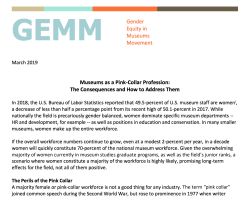Why Museum Consultants Aren’t the Second Coming
Posted: October 10, 2016 Filed under: Museum, museum consulting, Nonprofit Leadership | Tags: Leadership, museums, nonprofit, workplace culture Leave a comment
There are a lot of consultants in the museum world. There are great ones, good ones, and ones who should hone their skills a bit more. Museums hire consultants to provide advice, spearhead special initiatives, and fill gaps in their staffs on a temporary basis. In July we published a guest post by Sarah Erdman on a consultant’s view from the outside. Today’s post looks at consultants from the other direction–the inside out if you will.
Hiring a consultant to fill a specific task-oriented skill should be an easy fit. If you need a designer, a writer, a conservator–even an architect is a consultant of sorts–you advertise, review resumes, and interview. The winning candidate will plug a hole in your collective staff skill set. If, for example, you’re a small shop, it makes perfect sense to hire a consultant to walk through planning for new collections storage. You probably don’t have a conservator on staff, but neither do you have money to waste so good advice is important.
We’ve all seen talented staff become overworked and burned out when they take on too many tasks. Consultants allow museum and heritage organization leaders to put the breaks on ever-expanding job descriptions, at least temporarily. Yes, consultants cost money, but so does losing staff, either through attrition or illness. As a museum leader, it’s your job to integrate the consultant’s work into your organization. Hiring a consultant is not a judgement on anyone’s work ethic. Instead, it’s a chance to create an even better exhibit, program, or PR campaign.
But what if you need a consultant whose skills are broad based and theoretical? What if you want someone to help with mission, strategic planning or succession, topics that everyone has opinions about? What then? Here are some things to consider:
- A consultant’s work will only be as good as the information she gets. Make sure she receives the necessary reading material before she arrives. Previous plans, mission statements, job descriptions, whatever provides a sense of the problem she is there to explore.
- Your consultant is not a soothsayer. Make sure you and everyone else knows why she’s been invited.
- Make sure she meets everyone, and that everyone has a copy of her charge. This is important because you, your board, and staff may all mean different things when, for example, you hear the words “strategic plan.”
- Be sure your staff understands that for a consultant to work well, she needs to hear from everyone so encourage participation.
- Don’t hide the truth. Make sure your consultant has the whole story. Leave blame and baggage at the door.
- And last, don’t expect magic or miracles. Consultants whose specialty is strategic planning or governance can’t fix a broken organization; nor are they there to do your work for you. Be prepared to listen and roll up your sleeves when the final report arrives.
Joan Baldwin









